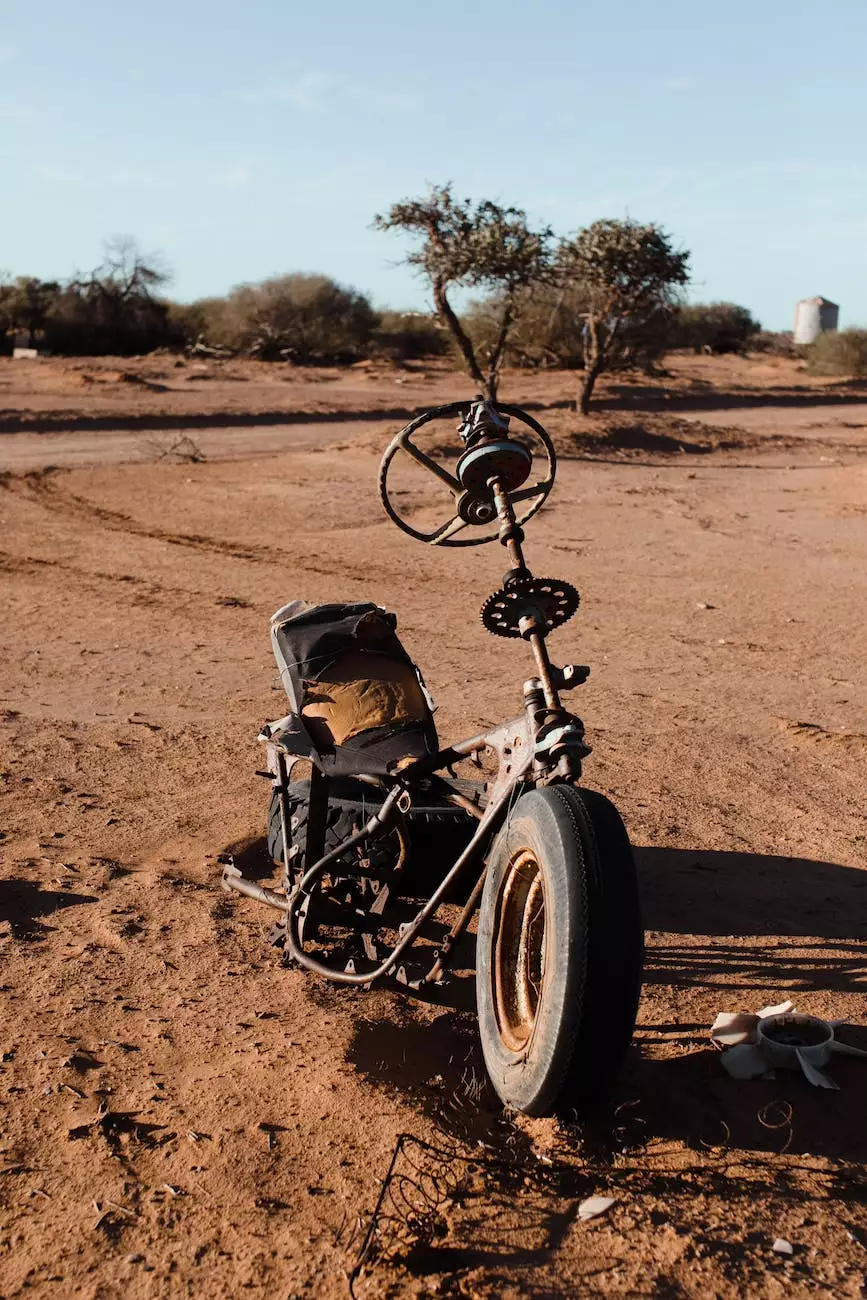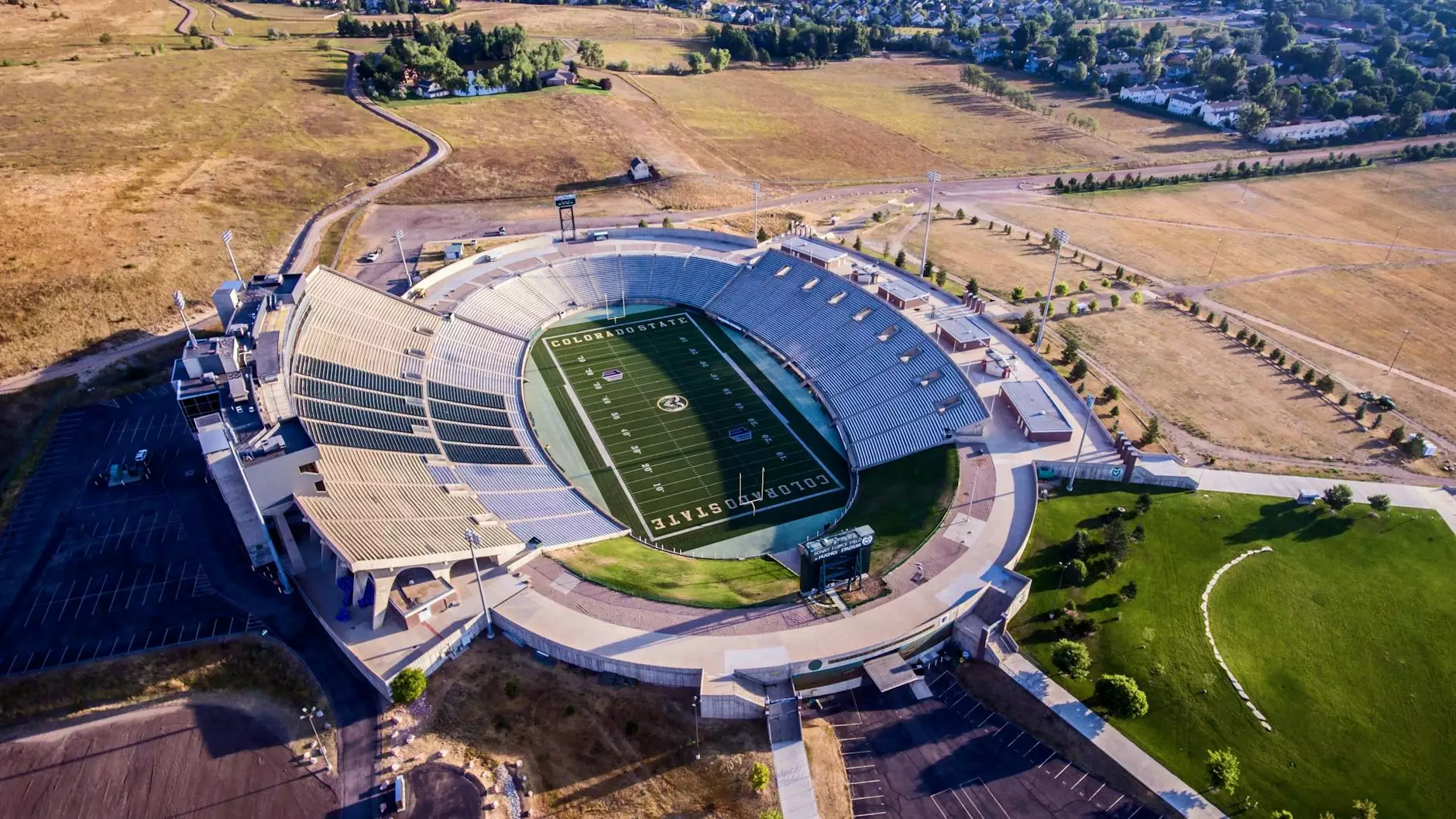Tips to Avoid Damage to Your Vehicle when Off-Roading
Auto Maintenance Tips
Welcome to BK Autosports, your ultimate destination for all things related to the automotive industry. In this article, we will provide you with invaluable tips and guidance on how to avoid damage to your vehicle when venturing off the beaten path and taking on thrilling off-road adventures.
Why Off-Roading?
Off-roading has gained immense popularity among adventure enthusiasts and thrill-seekers. It allows you to explore uncharted territories, experience adrenaline-inducing challenges, and immerse yourself in the beauty of nature. Whether you own a rugged SUV, a powerful truck, or a modified vehicle specifically designed for off-roading, it's crucial to protect your investment and avoid unnecessary damage.
The Importance of Proper Vehicle Preparation
Preparing your vehicle before embarking on an off-roading expedition is paramount. Neglecting to take the necessary precautions can lead to significant damage and expensive repairs. Follow these essential steps to ensure your vehicle is ready for the challenges ahead:
1. Inspect and Maintain Your Vehicle
Prior to hitting the trails, thoroughly inspect your vehicle for any existing mechanical issues or wear and tear. Check the tires, brakes, suspension, and all fluid levels. Maintain a regular maintenance schedule to address any potential problems promptly. By keeping your vehicle in top-notch condition, you can minimize the risk of damage during off-roading adventures.
2. Upgrade Your Vehicle's Protection
Equip your vehicle with appropriate protective gear such as skid plates, rock sliders, and brush guards. These aftermarket upgrades provide an extra layer of defense against potential obstacles and hazards you may encounter while off-roading. Reinforcing your vehicle's vulnerable areas significantly reduces the chances of damage and ensures a safer ride.
3. Choose the Right Tires
Selecting the right tires for off-roading is crucial. Opt for all-terrain or mud-terrain tires with deep treads to enhance traction and grip on uneven terrain. Consider the specific conditions you will face during your off-road excursions and choose tires that are best suited for those environments. Proper tire selection not only improves performance but also minimizes the risk of punctures and blowouts.
4. Adjust Your Suspension
Off-roading often involves traversing over rough and uneven terrain. To prevent damage to your vehicle's suspension system, consider upgrading it with sturdier components designed for off-road use. Adjust your suspension to accommodate the added weight of equipment, accessories, and potential cargo you might be carrying during your adventures. A properly tuned suspension provides better control, stability, and prevents unnecessary strain on critical components.
Safe Off-Roading Techniques
Now that your vehicle is properly prepared, it's time to master safe off-roading techniques. These tips will help you navigate challenging terrains while minimizing the risk of damage:
1. Research and Plan Your Route
Before venturing into unknown territories, research and plan your off-roading route in advance. Consult reliable resources, local off-roading clubs, and experienced off-roaders for recommendations and tips. Knowing the terrain, potential obstacles, and any restrictions or regulations in the area will help you navigate safely and avoid unnecessary damage.
2. Start Slow and Steady
Off-roading requires a different driving approach compared to regular road conditions. Start your off-road journey at a slow and steady pace to assess the terrain and familiarize yourself with the vehicle's handling. Gradually increase your speed as you gain confidence and maintain control over bumps, inclines, and descents.
3. Choose the Optimal Driving Line
When faced with obstacles such as rocks, tree stumps, or mud, select the optimal driving line to navigate through them safely. Study the terrain ahead and determine the path that offers the least resistance and potential vehicle damage. Use your vehicle's ground clearance and approach angles to your advantage.
4. Use Proper Gear and Techniques
Utilize the appropriate off-road gear and driving techniques to conquer challenging obstacles. Engage 4-wheel drive or differential locks when necessary, and practice techniques such as rock crawling, hill climbing, or water fording to enhance your off-roading skills. Understanding your vehicle's capabilities and limitations is crucial for avoiding damage.
5. Respect the Environment
Off-roading comes with the responsibility to respect and preserve the environment. Follow designated trails, avoid sensitive ecosystems, and never leave any waste or debris behind. Respecting the land ensures future generations can enjoy the same off-roading opportunities while minimizing the negative impact on wildlife and natural habitats.
Post-Off-Roading Vehicle Maintenance
Once you've completed your exhilarating off-roading adventure, it's essential to perform post-off-roading vehicle maintenance to address any potential damage and maintain your vehicle's longevity:
1. Thorough Inspection
Inspect your vehicle thoroughly after an off-roading excursion, paying attention to the undercarriage, suspension components, and body panels. Look for signs of damage, loose or missing parts, and fluid leaks. Address any issues promptly to prevent further damage or potential safety hazards.
2. Clean and Remove Debris
Clean your vehicle meticulously, paying extra attention to remove any accumulated dirt, mud, or debris. Use gentle cleaning products and avoid abrasive materials that may damage the vehicle's paint or protective coatings. Clear out any leaves, twigs, or rocks that might have lodged in hard-to-reach areas.
3. Maintenance and Fluid Checks
Perform regular maintenance tasks such as oil changes, filter replacements, and fluid checks as recommended by your vehicle's manufacturer. Off-roading can put additional strain on your vehicle's components, necessitating more frequent maintenance. Ensure all fluid levels are topped up and replace any fluids that have been contaminated during your off-road adventure.
4. Professional Inspection
Schedule a professional inspection with a qualified mechanic to thoroughly assess your vehicle's condition. They can identify any hidden damage or issues that may require specialized expertise to rectify. Addressing potential problems early on can save you from costly repairs down the line.
Conclusion
Exploring the world of off-roading can be an incredibly rewarding experience, but it's crucial to prioritize the safety and well-being of your vehicle. By following the tips provided throughout this article, conducting proper vehicle preparation, and practicing safe off-roading techniques, you can enjoy thrilling adventures while minimizing the risk of damage to your vehicle. Remember to respect the environment, maintain your vehicle diligently, and always prioritize the safety of yourself and others around you. Happy off-roading!










